Contents
Strawberries are one of the most popular berries among gardeners around the world. Its demand is not least due to its taste. However, it also happens that the strawberries collected by the gardener are sour. The list of probable reasons for the deterioration in the quality of the crop includes not only the “re-sorting” of seedlings, but also the wrong choice of a place for planting, serious mistakes in agricultural technology.
Why did sour strawberries grow
Strawberries are a rather “capricious” and finicky culture in care. If the berries collected from the beds are sour, this is a clear signal for the gardener: something does not suit the plants. On some factors, for example, the weather during the season, he is not able to influence. However, you can correct your own mistakes, leading to the fact that strawberries become sour.
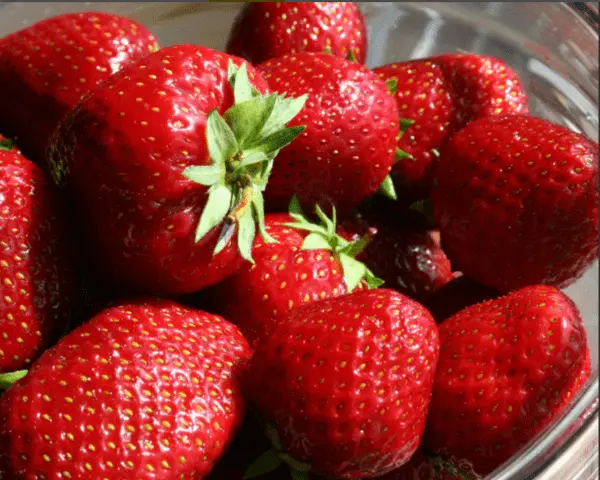
The large size and aesthetics of berries are not a guarantee of outstanding taste.
Wrong choice of variety
When choosing a variety for cultivation, one cannot ignore the taste of the berries. Moreover, it is recommended to study not only the “official” description given by the originator, but also the reviews of gardeners living in regions with similar climatic conditions. Otherwise, it is highly likely that strawberries will be quite sour even with high-quality agricultural technology.
However, even when buying varieties from the dessert category, highly appreciated by professional tasters, the gardener is not immune from getting sour berries. But here he will have only himself to blame for poor-quality care and the wrong choice of landing site.
Natural aging of the bush
For most varieties and hybrids, the period of “productive life” is quite short – 3-5 years. There are “long-livers”, in which it stretches for 7-8 years, but there are not many of them.
On old bushes, strawberries become small, sour, the flesh “hardens” and loses its characteristic aroma. The root system of the plant is “responsible” for this, already unable to “pull” the nutrients necessary for the ripening of berries in the required volume from the soil. Therefore, even high-quality agricultural technology will not save old bushes, the berries will still be sour.
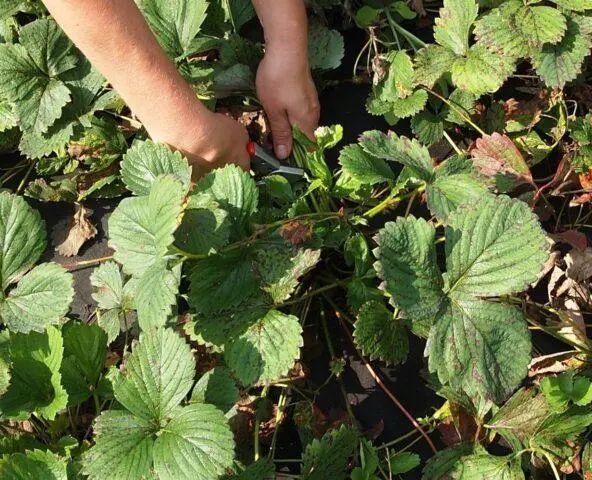
The aging of the bush is evidenced by a sharp decrease in yield and deterioration in the quality of berries.
Overwatering
With regular waterlogging of the soil, not only increases the risk of root rot. The natural sugars in strawberries “dissolve” and become watery and sour.)
Excessive watering is especially harmful at the last stage of ripening, 7-10 days before harvesting. The substrate is most actively moistened in the phase of flowering and formation of ovaries. Drought at this time can also cause overly acidic berries.
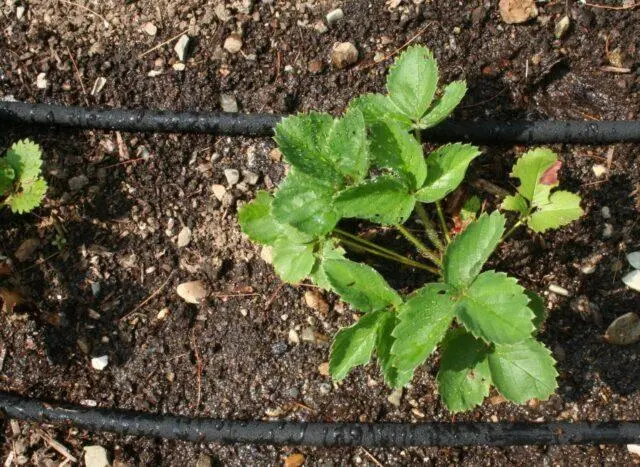
Most varieties and hybrids cannot boast of high drought resistance.
Micronutrient deficiency
Strawberry bushes during the active growing season need a large amount of macro- and microelements. Without this, the ripening of berries is impossible: they become smaller, become sour, the yield drops, because the plants simply “do not have enough strength”. To minimize the risk of picking sour berries, it is advisable to use specialized store-bought complex fertilizers.
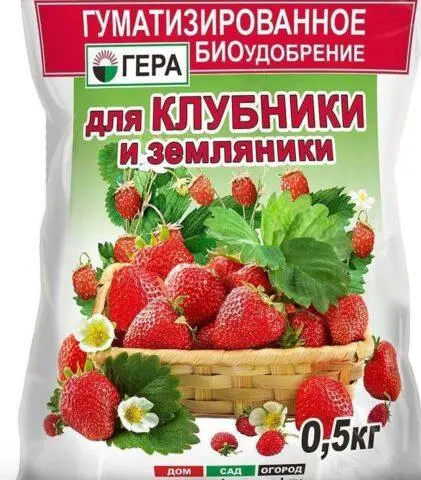
Strawberries also respond well to natural organics, folk remedies, but such top dressings do not differ in balance and “accuracy” of the composition
Lack of light
For the full development of bushes and the ripening of berries, a light day of at least eight hours is needed. Most varieties and hybrids are not harmed by direct sunlight, but sometimes light shade may be required during the hottest time of the day.
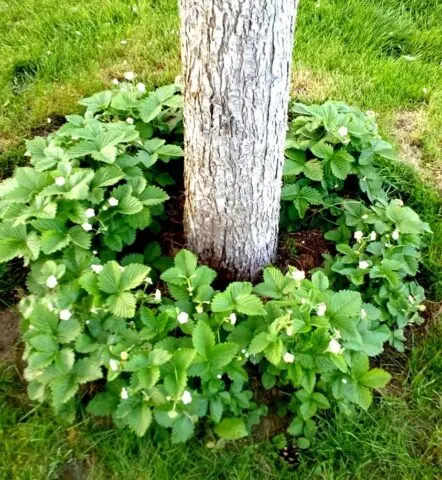
With a lack of light, strawberries will definitely be small and sour.
landing height
Any lowland or place at the foot of a hill is not suitable for a strawberry garden. In addition to problems with lighting, melt and rain water stagnates there for a long time, damp cold air inevitably accumulates.
If there is no other place for landing, the only way out is “raised” beds about 30 cm high. At the same time, they are leveled so that there is no slope. Otherwise, it is impossible to provide bushes located at different ends of the beds with uniform watering – the “upper” ones will suffer from drought, the “lower” ones from waterlogging. Both increase the risk of picking sour berries.
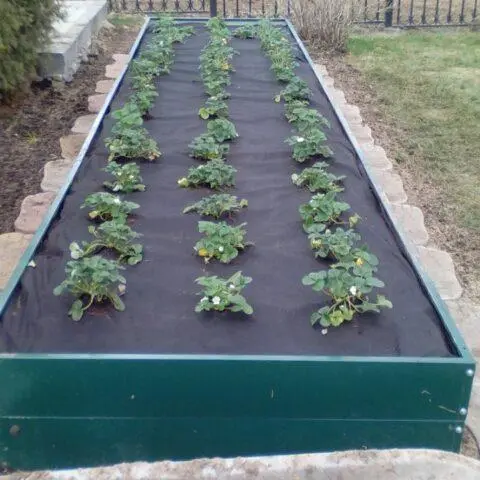
In the lowlands, the yield will inevitably be low, and the berries will be sour.
Planting density
With excessive “crowding”, the volume of harvested berries and their quality fall sharply. Strawberries turn out small and sour, as plants are forced to “compete” for water and nutrients, a deficiency forms.
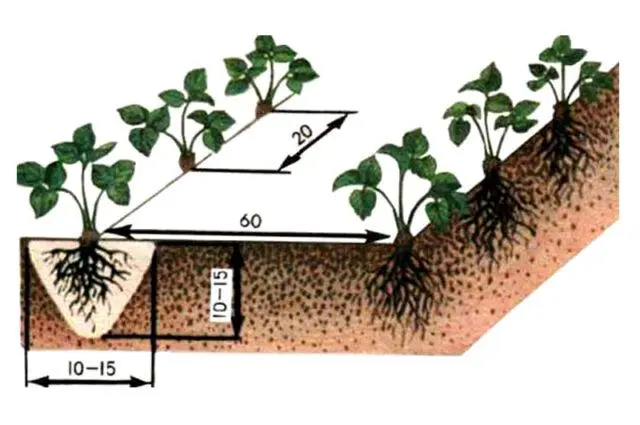
Planting strawberries “back to back” in the garden is a very bad idea
disease
Any fungal, bacterial or viral disease inevitably weakens and exhausts the plant. It can no longer provide the berries in the required volumes with nutrients. Sour, small or “wooden” berries in this case are one of the most “harmless” consequences of the disease.
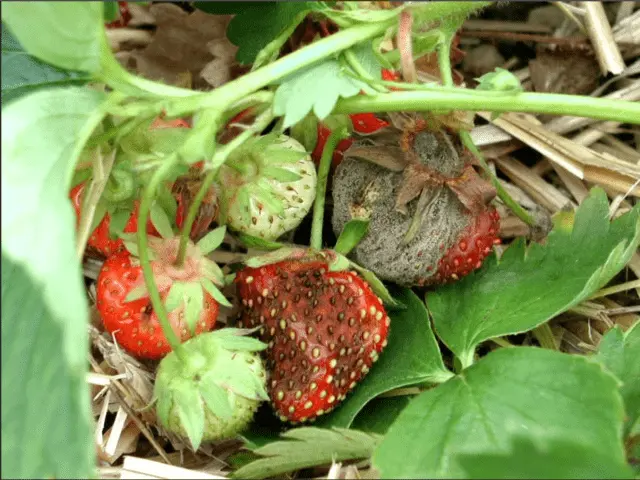
If nothing is done, plants affected by the pathogen will most likely die altogether.
Wrong landing time
The best time for this is August or early September. The bushes will have time to form a root system, but will not start growing. The combination of these two factors is a necessary condition for a successful wintering. Otherwise, next season the bushes will develop slowly, the berries on them ripen sour.
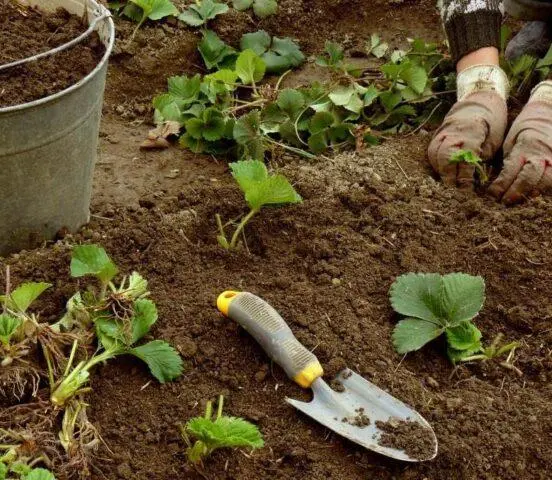
The planting time for strawberries is very important for the normal development of the bushes, and therefore for the quality of the crop in the future.
mowing
Mowing strawberry leaves in preparation for winter is a fairly popular agricultural technique. But experts strongly advise against resorting to it, replacing it with manual pruning or “combing” the beds with a rake with often located teeth.
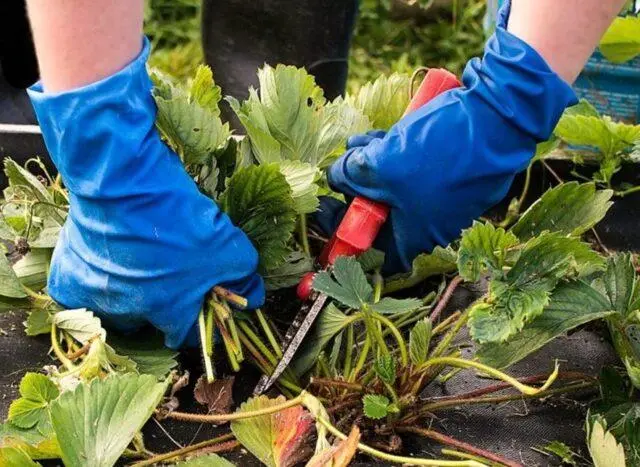
When mowing, the growth point is very often damaged; for the next season, the gardener gets deformed bushes with sour berries
What to do if strawberries are sour
If strawberries in the beds are constantly sour, contrary to varietal characteristics, it is necessary to analyze the location of the plantings and the quality of care for them. In most cases, it is enough to identify negative factors and “neutralize” them so that the berries become sweet, not sour.
What to do to eliminate common mistakes:
- Renew planting strawberries every 3-5 years, focusing on the volume and quality of the crop. The method does not matter – you can purchase new seedlings or use “child” outlets.
- Adjust watering. The substrate in the garden should be constantly slightly moist, but not wet, it also cannot dry out too much – and in a garden that looks like a “swamp”, and in overdried soil in the heat, strawberries will be sour. It is impossible to specify specific intervals, everything depends on air temperature, frequency and intensity of precipitation. The ideal option is drip irrigation.
- Provide strawberries with timely feeding, taking into account their needs at a certain stage of development. Fertilizers must be applied at the beginning of the growing season, with active leaf growth, with the appearance of buds, after flowering, the first “wave” of the crop, and about a month after the end of fruiting.
- “Correct” the quality of the substrate. So that the strawberries are not acidic, humus is introduced into the “poor” sandy soil in a timely manner, and river sand is added to the “heavy” clay soil. Needs “correction” and inappropriate acid-base balance.
- Provide plants with enough light and heat. The “requirements” of strawberries for cultivation conditions, first of all, for illumination, must be taken into account, otherwise the berries will be sour.
- Follow the disembarkation plan. In the description of a variety or hybrid, the originator necessarily mentions the dimensions of adult bushes and the recommended interval between them. If the instructions are not followed, the strawberries will be sour, regardless of the quality of care.
- Regularly inspect the bushes for suspicious symptoms. Having found them – immediately take measures to combat a specific disease or pest.
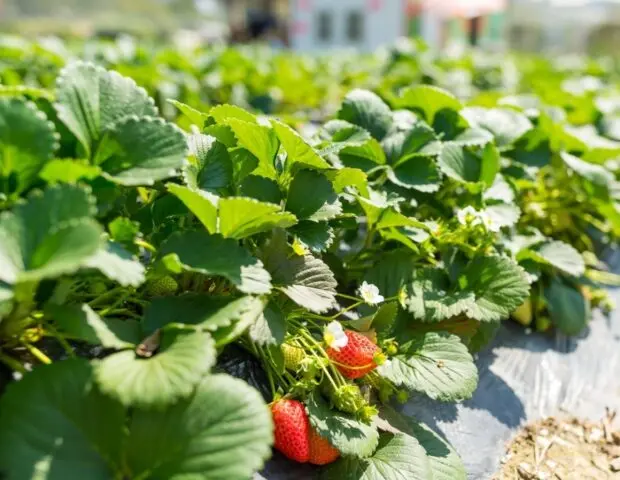
Without knowledge of the important nuances of agricultural technology, it is impossible to obtain abundant harvests of sweet berries.
Sweet Strawberry Growing Tips
The risk of getting sour strawberries is noticeably reduced if we take into account the important nuances of agricultural technology:
- Regular (2-3 times a month) weeding of plantings and their loosening or mulching of the beds is required. The root system of strawberries is superficial, it inevitably “loses the competition” to weeds. With a nutrient deficiency, sour berries ripen.
- It is impossible to get a good harvest of berries and high-quality “daughter” rosettes from a strawberry bush at the same time. Already at the beginning of the season, it is necessary to decide on its “purpose” and regularly remove either “whiskers” or buds.
- The end of fruiting does not mean that strawberries no longer require care. Watering and fertilizing continue, they are necessary for normal preparation for winter. On frost-affected plants, berries ripen a little, they turn out sour.
- Useful neighbors for strawberries are onions, garlic, any Legumes. The first two plants are rich in phytoncides, which effectively destroy pathogenic microflora, their specific smell repels many pests. Legumes improve the quality of the soil by saturating it with nitrogen.
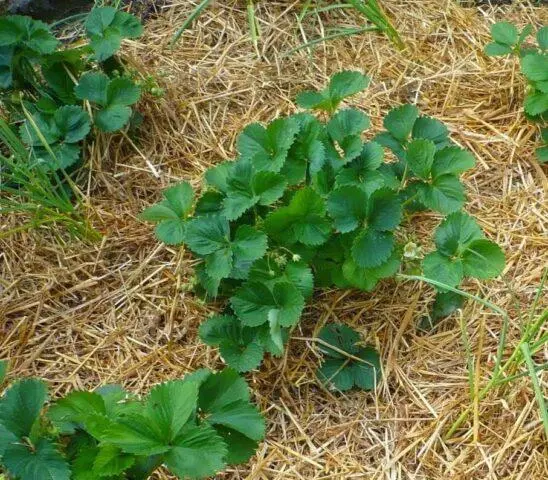
Mulching greatly simplifies the care of strawberries and prevents rotting of berries.
Conclusion
If the strawberries collected from the beds are sour, the reason is not always in the unreliable description of the variety or hybrid given by the originator, or in the dishonesty of the seller selling “fake” seedlings. It is very likely that the gardener himself is “to blame” for this, choosing a landing site that does not meet the “requirements” of the culture or does not provide strawberries with high-quality and competent care.









